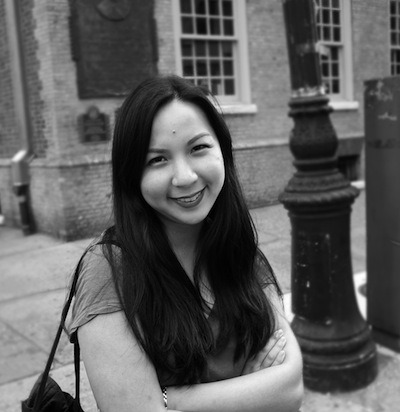For each day of National Poetry Month one of our fellows will explore the breadth of poetry in three ways: through a question from another fellow, through a poem and through a writing prompt, #writetoday.
[QUESTION]
Jane Wong asks, "April is the cruelest month" (Eliot)—How does poetry make April less cruel? Do you see poetry as an act of kindness?
Dan Lau resopnds, I actually don’t think poetry makes it less cruel. I think poetry makes it more bearable. The act of sharing, of presenting a poem to the world seems to me an act of kindness on the part of the poet but more of a courageous act to lay one’s self bare and and allow for appraisal so that we may feel less alone. April will always be April. We don’t always have to be dicks.
[POEM]
Chymos
I am a banker but my liver tells me no.
There is spring in my blood, some say too much.
I’ve exhaled all my arid discourse. I’ve thrown
the ledger to the kiln; the bright leaves shower from the throat
of its chimney. Something is missing.
Something has been removed. I’ve moved
my shoes to the right side of the door. The hens
only lay on Wednesdays. In the brightness of morning
there is only pollens’ yellow haze. Wet phlegm
slicks the marsh reed to my voice and yet I still sing;
this secret song. This song, a tear drop tainting the heart.
Mournful creation, I see it in my home. My city.
The bile rises through a tide of forgetfulness.
The preservation of practical dreams, the controlled
fire of a necessary camp ground. Sprinkle the civet
no one wants to bottle. Smear the thickness of ambergris
over my threshold. Where is the wrought desire for scent?
For the salt of cured pork shoulder? I will keep them with me;
the hyraceum, the resin of myrrh, a lamb’s belly wool.
These I keep for me and when they ask, I will show them
how to flay a beaver, how to watch the steam rise
from its open body and take what’s precious.
Dan Lau is a poet and educator that enjoys baking and fine drink.

















